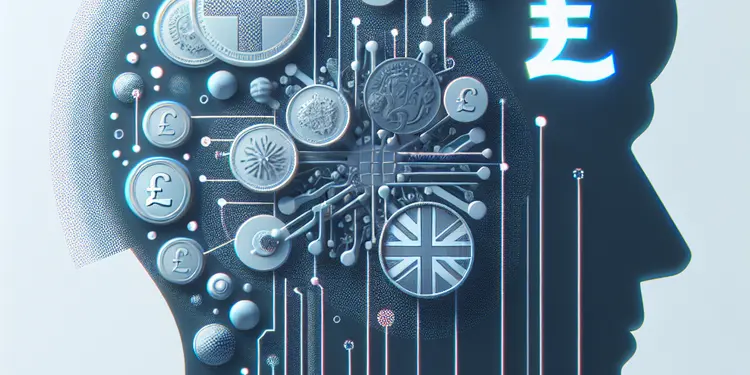
Find Help
More Items From Ergsy search
-
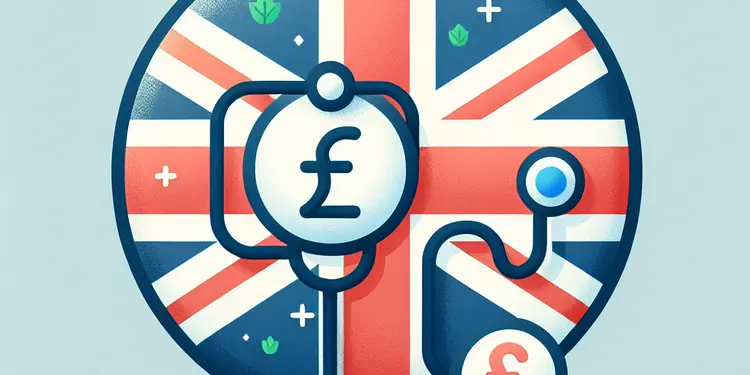
What is Huntington's disease?
Relevance: 100%
-
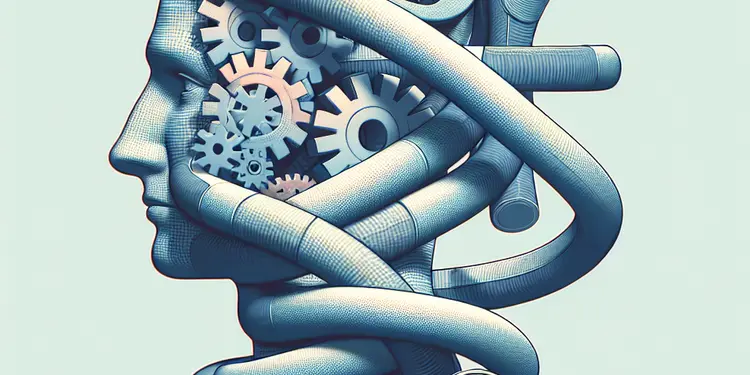
Is Huntington's disease fatal?
Relevance: 100%
-
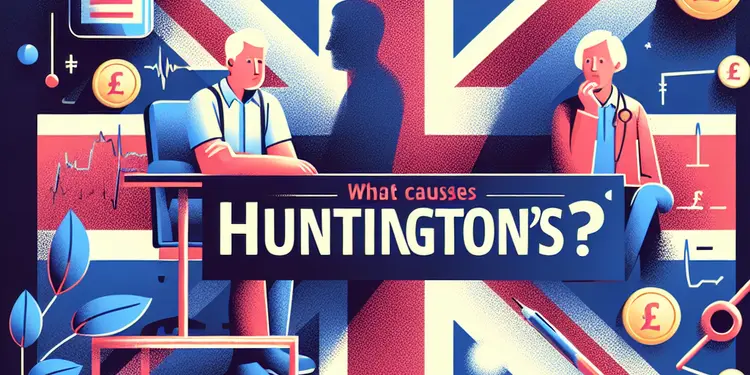
What causes Huntington's disease?
Relevance: 96%
-
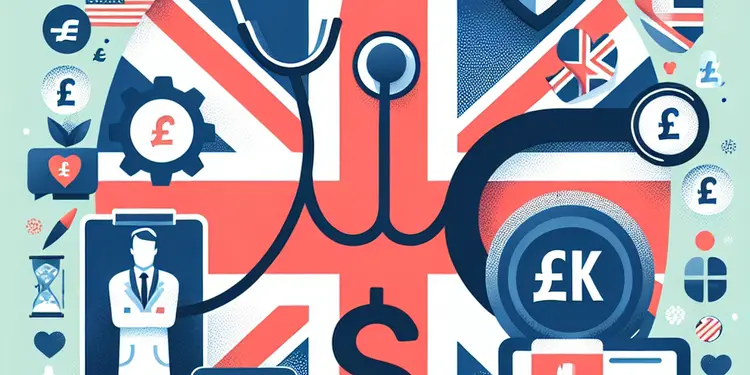
How is Huntington's disease diagnosed?
Relevance: 96%
-
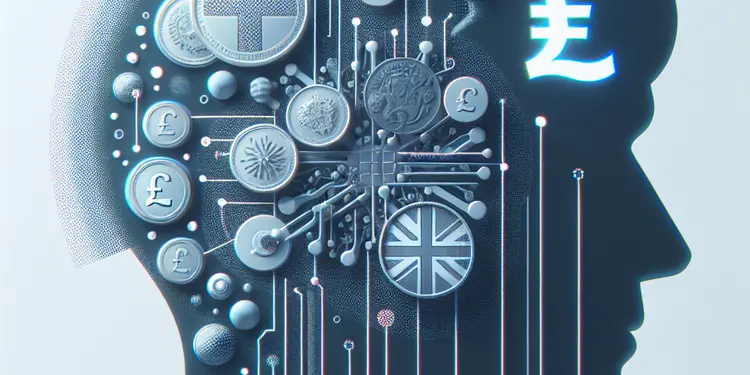
Can Huntington's disease be cured?
Relevance: 95%
-
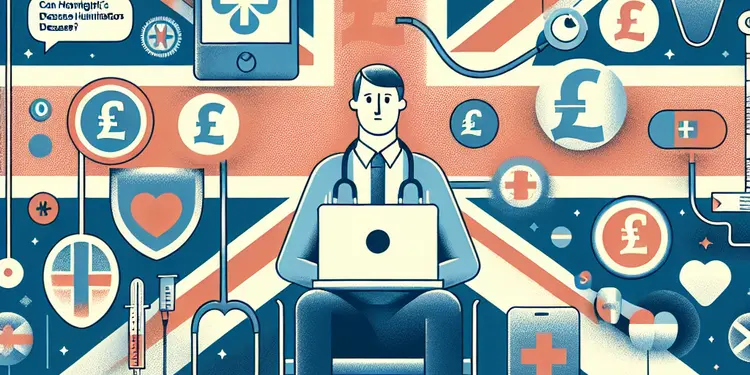
Can Huntington's disease be prevented?
Relevance: 95%
-
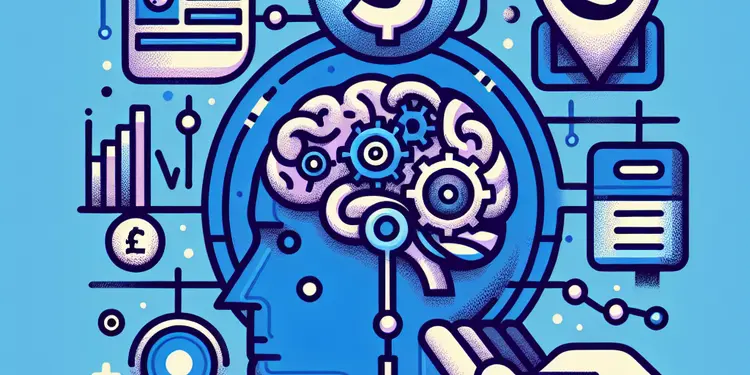
What are the symptoms of Huntington's disease?
Relevance: 95%
-

What research is being done on Huntington's disease?
Relevance: 91%
-
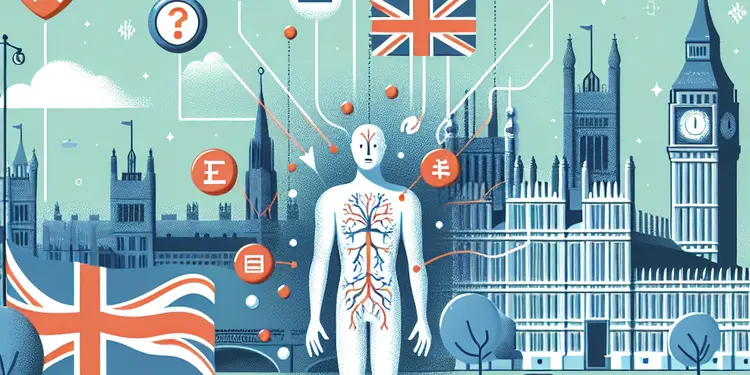
How does Huntington's disease affect emotions?
Relevance: 89%
-

How does Huntington's disease affect movement?
Relevance: 89%
-
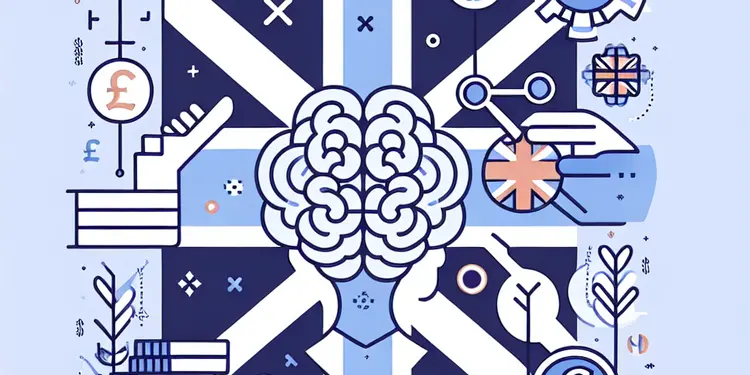
How does Huntington's disease affect cognition?
Relevance: 89%
-
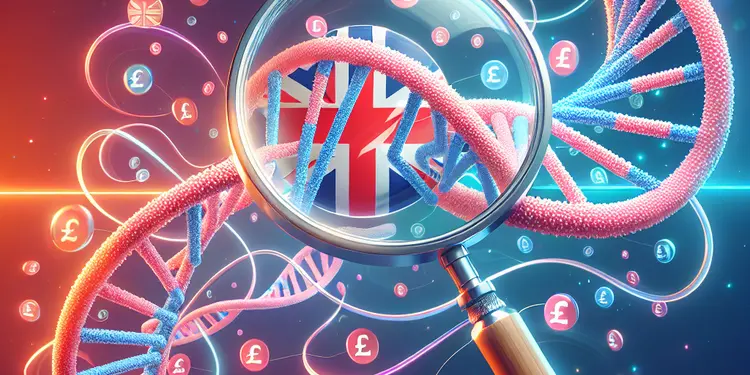
What is the role of genetic testing in Huntington's disease?
Relevance: 87%
-

At what age do symptoms of Huntington's disease typically appear?
Relevance: 87%
-
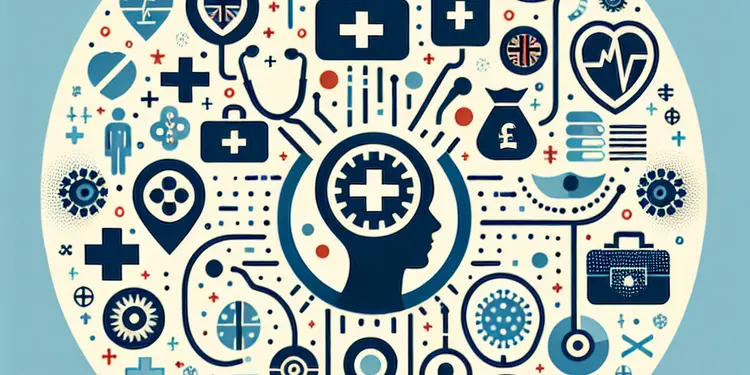
What kinds of specialists are involved in treating Huntington's disease?
Relevance: 86%
-

Can lifestyle changes help manage Huntington's disease?
Relevance: 83%
-
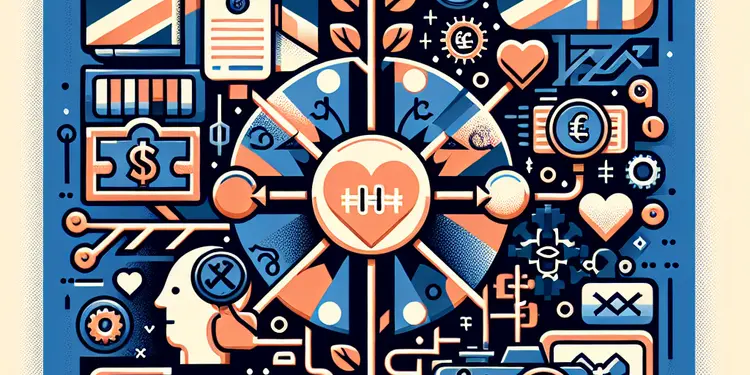
How is Huntington's disease inherited?
Relevance: 69%
-
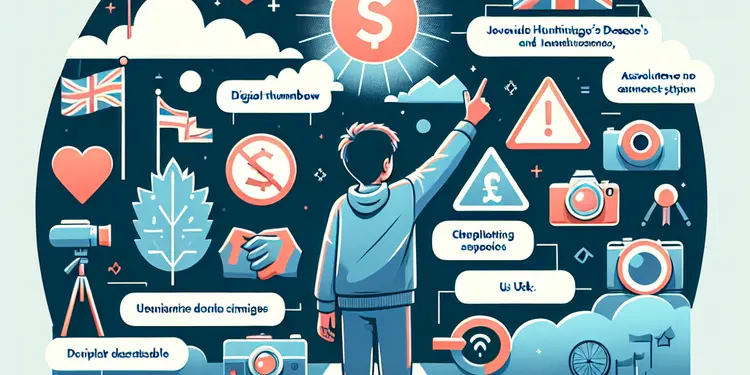
What is Juvenile Huntington's disease?
Relevance: 69%
-
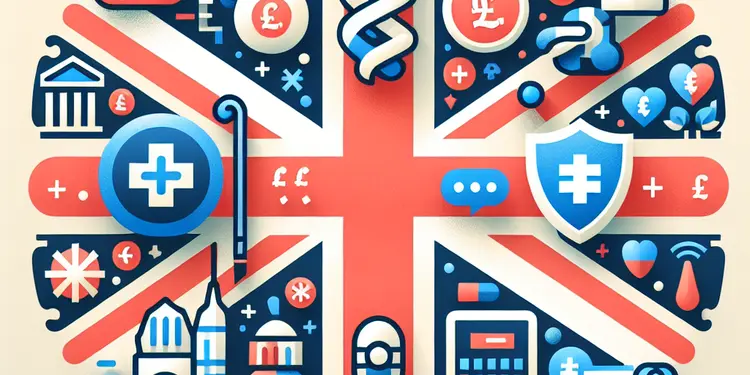
Are there treatments available for Huntington's disease?
Relevance: 69%
-
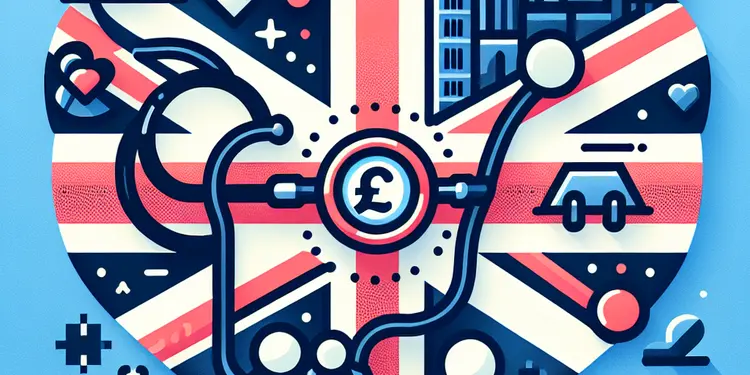
What support is available for families affected by Huntington's disease?
Relevance: 60%
-
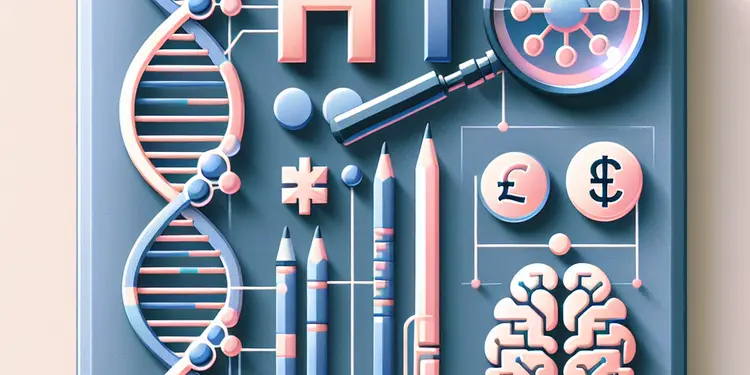
What role does the HTT gene play in Huntington's disease?
Relevance: 57%
-
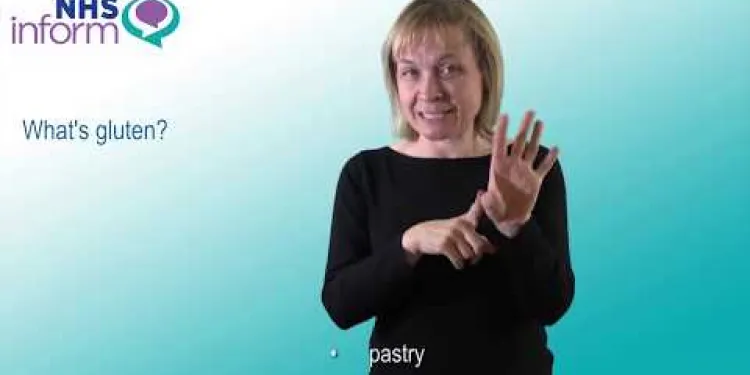
Coeliac disease
Relevance: 33%
-
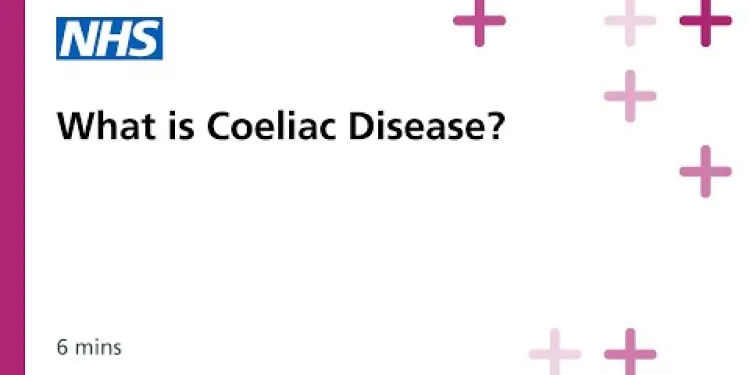
Coeliac Disease: Session 1: What is Coeliac Disease?
Relevance: 33%
-
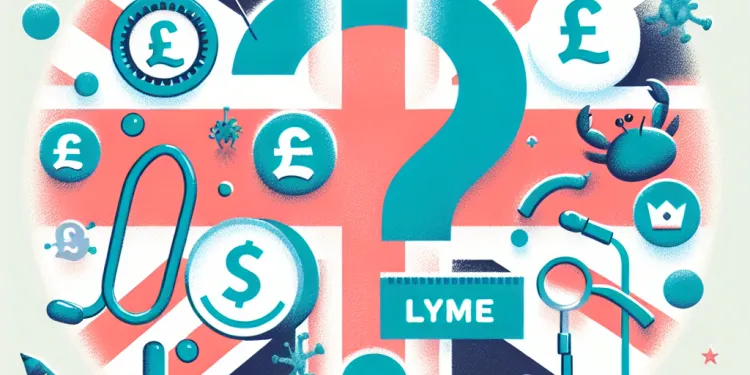
What is Lyme Disease?
Relevance: 32%
-

Liver disease | NHS
Relevance: 32%
-

Is Crohn's disease contagious?
Relevance: 32%
-
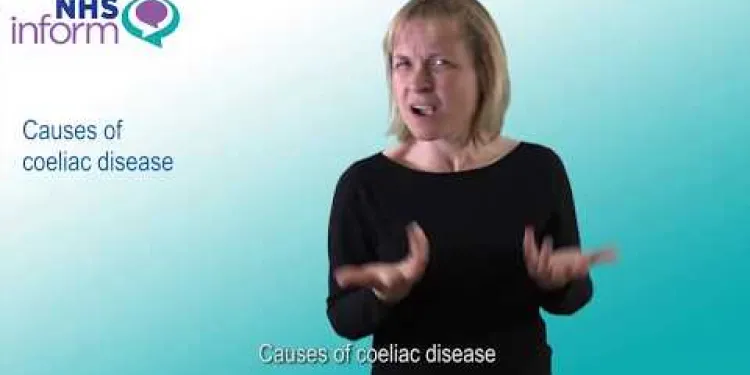
Causes of coeliac disease
Relevance: 32%
-
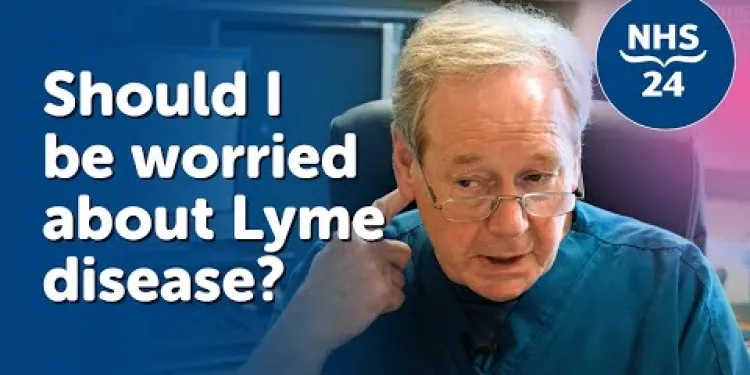
Lyme disease: What is it?
Relevance: 32%
-
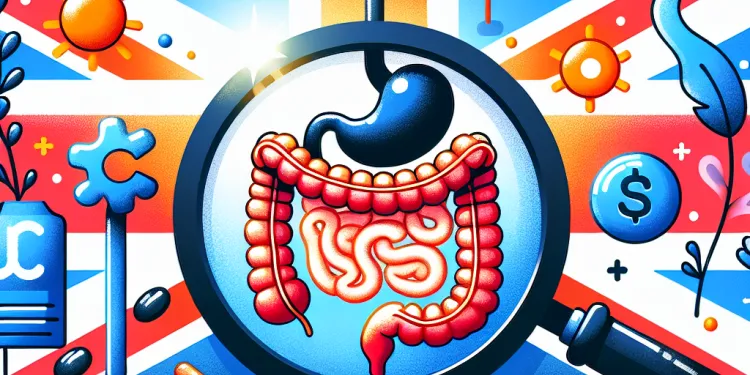
Is there a cure for Crohn's disease?
Relevance: 32%
-
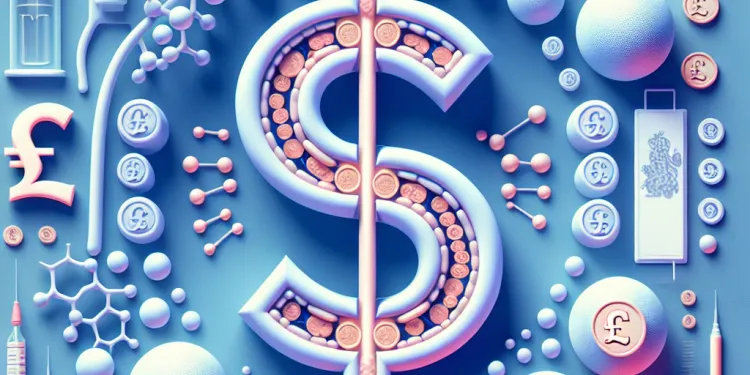
What is Mitochondrial disease?
Relevance: 32%
-
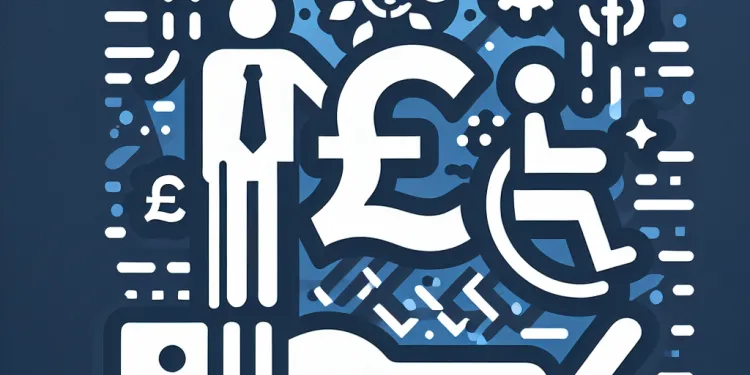
What is Parkinson's disease?
Relevance: 31%
-
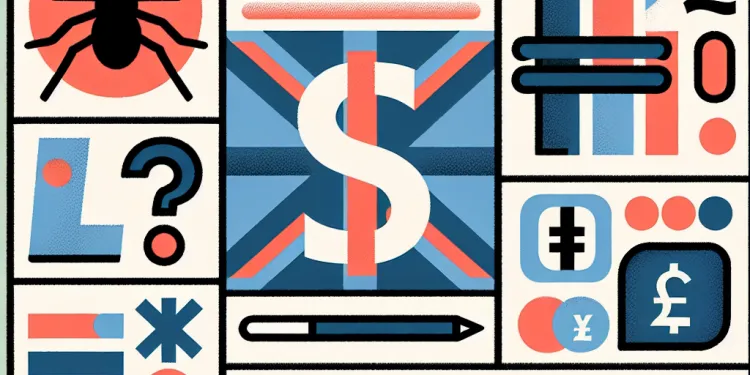
Is there a vaccine for Lyme disease?
Relevance: 31%
-
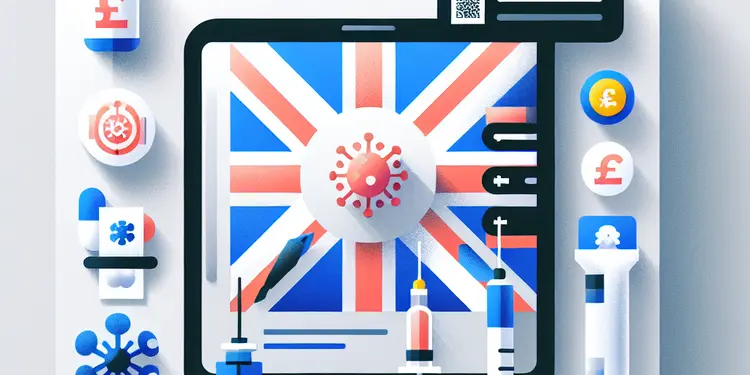
Is flesh-eating disease contagious?
Relevance: 31%
-
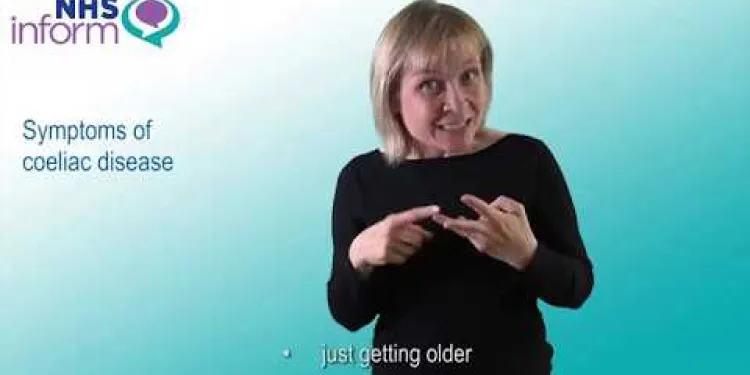
Symptoms of coeliac disease
Relevance: 31%
-
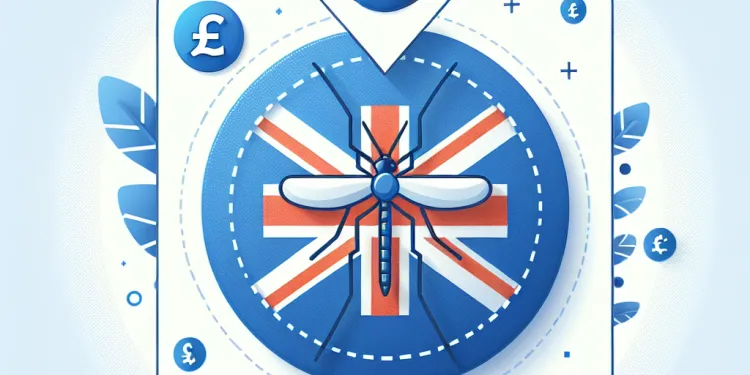
Do UK mosquitoes carry diseases?
Relevance: 31%
-
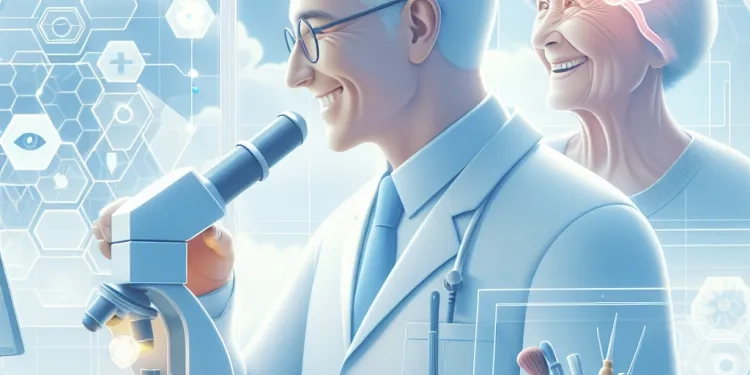
What is Alzheimer's disease?
Relevance: 31%
-
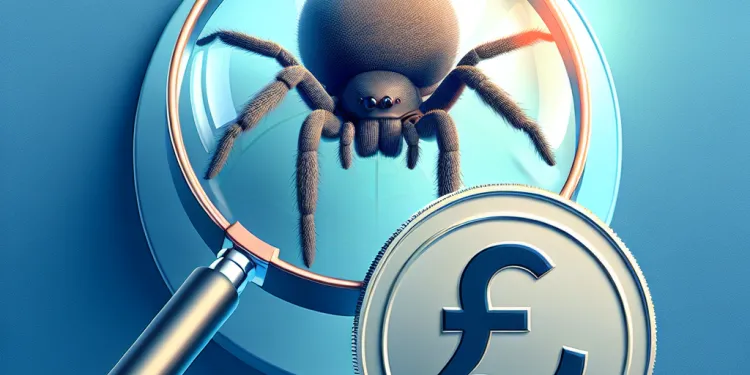
Do spiders in the UK carry diseases?
Relevance: 31%
-
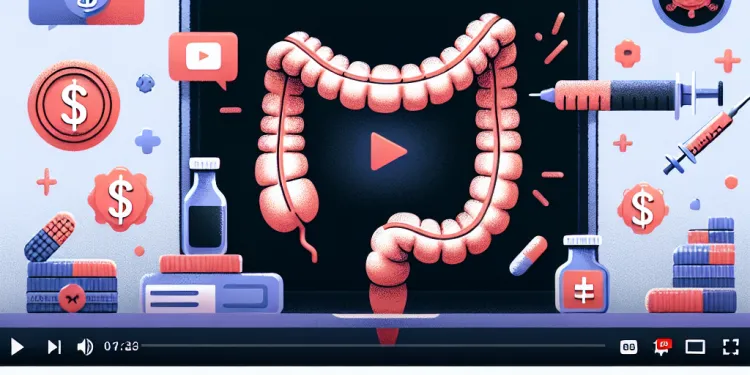
What causes Crohn's disease?
Relevance: 30%
-
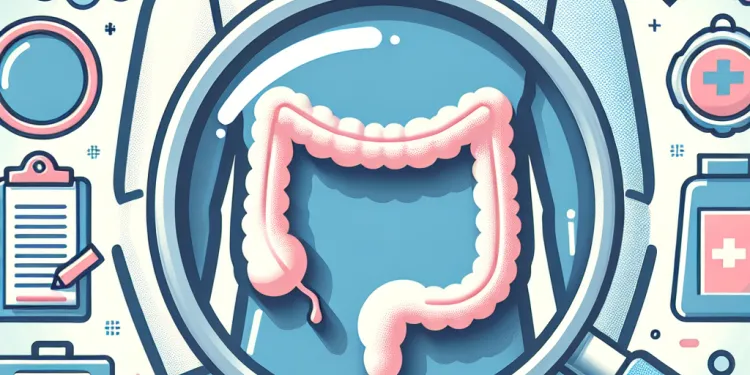
How is Crohn's disease diagnosed?
Relevance: 30%
-
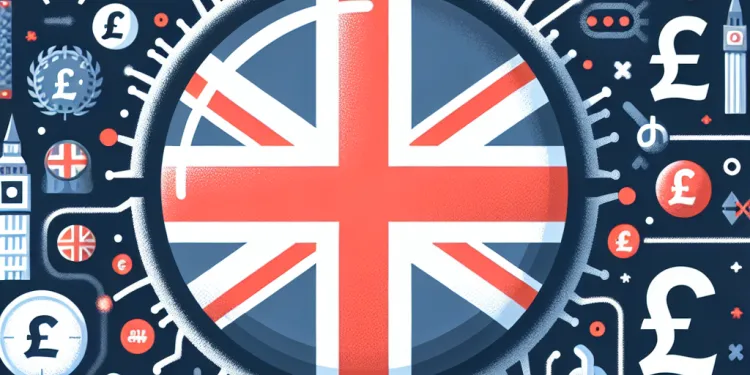
Can Lyme disease be treated?
Relevance: 30%
-

How is Lyme disease transmitted?
Relevance: 30%
Understanding Huntington's Disease
Huntington's disease is a hereditary neurodegenerative disorder that affects the brain, leading to progressive deterioration in physical, cognitive, and emotional capabilities. Named after Dr. George Huntington, who first described the condition in 1872, it is caused by a mutation in the HTT gene. The disease is inherited in an autosomal dominant pattern, meaning that each offspring of a parent with the condition has a 50% chance of inheriting the faulty gene.
Current Treatments for Huntington's Disease
As of now, there is no cure for Huntington's disease. Treatment focuses on managing symptoms, improving quality of life, and providing supportive care to patients and their families. Medications are available to help control movement disorders and psychiatric symptoms associated with the condition. For instance, tetrabenazine and deutetrabenazine are used to manage chorea, which is the involuntary jerking and writhing movements seen in many patients. Antidepressants and antipsychotics may also be prescribed to address mood swings, depression, and anxiety.
Research and Potential Future Treatments
Scientists worldwide are actively researching Huntington's disease with the hope of finding a cure. Advances in genetics and biotechnology offer promising avenues for potential treatments. Gene silencing technologies, such as antisense oligonucleotides (ASOs), are among the most notable strategies being explored. These aim to reduce the production of the toxic form of the huntingtin protein produced by the mutated HTT gene. Early trials of ASOs have shown promise in animal models and have progressed to human clinical trials.
Another exciting area of research is stem cell therapy. Researchers are investigating whether stem cells can replace damaged neurons in the brains of Huntington's patients. While these approaches are still in the experimental stages, they provide hope for future interventions that could slow down or halt the progression of the disease.
Support and Resources in the UK
The UK is home to several organisations dedicated to supporting individuals with Huntington's disease and their families. The Huntington's Disease Association offers a range of resources, including information, support groups, and advocacy. The National Health Service (NHS) also provides guidance and care options for those affected by the condition. Awareness campaigns and community involvement are crucial in raising the profile of Huntington's disease and fostering a supportive environment for families dealing with its challenges.
Conclusion
While a cure for Huntington's disease remains elusive, current research and treatments offer hope and some relief for patients and their families. Continued support for scientific research and patient care is essential. Increasing awareness and understanding of the condition can help improve the lives of those affected and bring us closer to finding a cure. Until then, commitment to comprehensive care and support remains paramount.
Understanding Huntington's Disease
Huntington's disease is an illness that runs in families. It affects the brain and gets worse over time. This illness was named after Dr. George Huntington, who talked about it first in 1872. It happens because of a change in a part of our body called the HTT gene. If a parent has this disease, each child has a 50% chance of getting it too.
Current Treatments for Huntington's Disease
Right now, there is no cure for Huntington's disease. Doctors try to help with the symptoms to make life better for people with the disease and their families. They use medicine to help control movements and feelings. Some medicines, like tetrabenazine, help with jerky movements. Others, like antidepressants, help with mood and worry.
Research and Potential Future Treatments
Scientists are working hard to find a cure for Huntington's disease. New ideas in science and technology are giving us hope. One idea is called gene silencing. This tries to stop the bad part of the HTT gene from making too much of a harmful protein. Other ideas, like using special cells called stem cells, might help fix brain cells. These ideas are not ready yet, but they give us hope for the future.
Support and Resources in the UK
In the UK, there are groups that help people with Huntington's disease and their families. The Huntington's Disease Association provides help and information. The National Health Service (NHS) also helps people with the disease. It is important to talk about Huntington's disease so more people know and can help.
Conclusion
Even though there is no cure for Huntington's disease yet, people are working on it. Research and new treatments give hope. We need to keep supporting scientists and families dealing with the disease. By learning more about it, we can help make life better for those with Huntington's disease and move closer to finding a cure. Until then, caring for and supporting each other is very important.
Frequently Asked Questions
Can Huntington's disease be cured?
Currently, there is no cure for Huntington's disease. Research is ongoing to find effective treatments.
Are there any effective treatments for Huntington's disease?
While there is no cure, medications and therapies can help manage symptoms and improve quality of life.
What research is being conducted to find a cure for Huntington's disease?
Research includes gene editing, neural stem cell therapy, and trials of new drugs that aim to slow disease progression.
How close are scientists to finding a cure for Huntington's disease?
Scientists have made progress in understanding Huntington's disease, but a cure is not yet available and may take years to develop.
Why is it difficult to cure Huntington's disease?
Huntington's disease is caused by genetic mutations, making it challenging to treat or reverse the damage caused to brain cells.
Can lifestyle changes cure Huntington's disease?
Lifestyle changes cannot cure the disease but may help alleviate some symptoms and improve overall health.
Have there been any breakthroughs in curing Huntington's disease?
There have been scientific advances in understanding the disease mechanism, but no definitive cure has been found yet.
How does gene therapy work for Huntington's disease?
Gene therapy aims to modify or silence the mutated gene responsible for Huntington's disease, potentially slowing progression.
Can Huntington's disease be prevented?
Currently, there is no way to prevent Huntington's disease if you inherit the mutated gene from a parent.
Is stem cell therapy a viable option for Huntington's disease?
Stem cell therapy research is ongoing, with potential to replace damaged brain cells, but it is not yet a proven treatment.
Can early detection lead to a cure for Huntington's disease?
Early detection can help manage symptoms sooner, but it does not currently change the overall progression or lead to a cure.
What role do clinical trials play in finding a cure for Huntington's disease?
Clinical trials are crucial for testing new treatments and therapies to determine their safety and effectiveness.
How can genetic counseling help with Huntington's disease?
Genetic counseling helps individuals understand their risk and make informed decisions about family planning and testing.
Are there dietary recommendations to help manage Huntington's disease?
A balanced diet and proper nutrition can support overall health but do not cure the disease.
What is the life expectancy for someone with Huntington's disease?
Life expectancy varies but individuals can live 15 to 20 years after diagnosis, depending on disease progression and care.
Can exercise benefit individuals with Huntington's disease?
Regular exercise may help improve physical and mental well-being but will not cure the disease.
What is the role of a neurologist in managing Huntington's disease?
A neurologist helps diagnose, manage symptoms, and develop a care plan for individuals with Huntington's disease.
Are there any promising drugs in development for Huntington's disease?
Several drugs are in clinical trials aiming to slow progression or alleviate symptoms but none are yet definitive cures.
Can mental health support aid those with Huntington's disease?
Mental health support is crucial to help manage depression, anxiety, and other psychiatric symptoms associated with the disease.
Is there a way to slow down the progression of Huntington's disease?
Current treatments focus on symptom management, but some experimental therapies may have potential to slow progression.
Can Huntington's disease be cured?
Huntington's disease is a sickness that affects the brain. Right now, doctors cannot make it go away completely. But doctors and nurses can help people feel better and manage some symptoms.
People with Huntington’s disease can talk to their doctor about their treatment and how to stay as healthy as possible.
It can help to use pictures, videos, or talk to someone who understands. These things can make it easier to understand what is happening.
Right now, there is no way to make Huntington's disease go away completely. Scientists are working hard to find medicines that can help.
Can Huntington's disease be treated?
Huntington's disease is a sickness that affects the brain. Right now, there is no cure to stop it. But there are ways to help people feel better. Doctors can give medicines to help with movements and mood. It is also good to talk with a doctor or therapist.
If you know someone with Huntington's, they may need help with everyday things. Support groups can also help families feel less alone. Remember, it is important to see a doctor regularly.
There is no way to make it go away completely, but medicine and special help can make you feel better and make life easier.
What research is being done to find a cure for Huntington's disease?
Scientists are working hard to help people with Huntington's disease. They are doing research to find new medicines. These medicines might stop the disease or make it better.
Researchers are also looking at genes. Genes are like instructions in our body. They want to see if changing these instructions can help.
If you want to learn more, you can use tools like audiobooks to listen instead of reading. Pictures and videos can also help you understand more about the disease.
Scientists are studying new ways to help people. They want to change bad genes to good ones. They are trying to fix brain cells. They are also testing new medicines to make people feel better.
Are scientists nearly finding a cure for Huntington's disease?
Scientists are learning more about Huntington's disease, but there is no cure yet. It might take a long time to find one.
Why is it hard to fix Huntington's disease?
Huntington's disease is a sickness that happens because of changes in our genes. This makes it hard to find a cure or fix the harm it does to the brain.
If reading is hard, try reading together with someone or listen to an audiobook. Use apps that read text out loud to help understand better.
Can Changing How You Live Cure Huntington's Disease?
No, changing your lifestyle cannot cure Huntington's disease.
You can do things that might help you feel better, like:
- Eating healthy food
- Exercising regularly
- Getting enough sleep
If you or someone you know has Huntington's disease, it's a good idea to talk to a doctor.
Doctors can help with treatment and support.
Changing how you live won't make the disease go away, but it can help with some of the symptoms and make you feel healthier.
Have scientists found new ways to help people with Huntington's disease?
Scientists have learned more about how the disease works, but they haven't found a sure way to make it go away yet.
How does gene therapy help people with Huntington's disease?
Gene therapy is a way to help fix problems in our genes, like those that cause Huntington's disease. Genes are like a recipe book for our bodies. Sometimes, there are mistakes in these recipes.
With gene therapy, doctors try to fix or change the faulty gene. This can help the body work better.
Gene therapy for Huntington's disease is still being studied. Doctors and scientists are working to make it safe and helpful for people.
If you want to learn more, you can:
- Talk to a doctor or a nurse. They can explain things clearly.
- Use picture books or videos to understand better.
- Ask a family member or friend to help you learn more.
Gene therapy is a way doctors try to fix the part of the body that causes Huntington's disease. This can help slow down how quickly the disease gets worse.
Can we stop Huntington's disease from happening?
Right now, we can't stop Huntington's disease if you get the changed gene from a parent.
Can stem cells help people with Huntington's disease?
Huntington's disease is a serious illness that affects the brain. Scientists are studying if using special cells, called stem cells, can help treat it. Stem cells can change and help fix damaged parts of the body.
If you or someone you know has Huntington's disease, it's important to talk to a doctor about these treatments. They can explain what might work and what doesn't yet.
Here are some tips to help understand this topic better:
- Ask your doctor simple questions about stem cell therapy.
- Try using videos or visuals that explain how stem cells work.
- Use a dictionary or ask someone if there are words you don't know.
Scientists are studying stem cell therapy. It might help fix brain cells that are hurt. But we don't know for sure if it works yet.
Can we find and cure Huntington's disease early?
Finding out early can help deal with symptoms quicker, but it doesn't change how the illness moves forward and cannot cure it.
How do clinical trials help find a cure for Huntington's disease?
Clinical trials help doctors check if new medicines and therapies are safe and if they work well.
How can talking to a genetics expert help with Huntington's disease?
Huntington's disease is a health problem that can run in families.
If you or someone in your family might have it, a genetics expert can help.
They can explain what the disease is, how it might affect you, and what you can do next.
They can also help you understand if you might pass it on to your children.
Some tools and techniques that might be helpful include:
- Writing down your questions before you meet with the expert.
- Bringing a friend or family member to support you.
- Asking for written information to read at home.
Genetic counseling helps people understand their health risks. It helps them make good choices about having children and getting health tests.
Can food choices help people with Huntington's disease?
Eating healthy food helps us feel good, but it doesn't make sickness go away.
How long do people live with Huntington's disease?
Huntington's disease is a sickness that can make people very ill over time. People who have this sickness usually live for 15 to 20 years after they start feeling sick. But how long a person lives can be different for everyone.
If you want to learn more or need help, you can talk to a doctor. You can also use tools like picture charts or videos to understand better.
How long someone lives can be different for everyone. But a person might live 15 to 20 years after they find out they are sick. This depends on how the illness changes and the type of care they get.
Does exercise help people with Huntington's disease?
Exercise can be good for people with Huntington's disease. It can help them feel stronger and happier.
Here are some things that might help:
- Walking or doing light activities every day.
- Stretching to keep muscles loose.
- Trying simple exercises with the help of a friend or trainer.
Remember, everyone is different. It's important to talk to a doctor before starting any new exercises. They can give advice on what's safe and helpful.
Moving your body can help you feel better in your body and mind, but it won't make the disease go away.
What does a neurologist do to help people with Huntington's disease?
A neurologist is a doctor who helps with brain problems.
If someone has Huntington's disease, a neurologist can help:
- Check symptoms: They look for signs of the disease.
- Plan treatment: They help decide what medicines or therapies are best.
- Support families: They talk to families about what to expect and how to help.
Tools like picture cards or drawing can help explain things clearly to someone with learning needs.
A brain doctor, called a neurologist, can help people who have a sickness called Huntington's disease. They figure out if someone has it, help with problems it causes, and make a plan to take care of the person.
Are there any new medicines being made for Huntington's disease?
Scientists are working hard to find new medicines for Huntington's disease. These medicines might help people feel better.
- Medicines are tested in labs first. This helps make sure they are safe.
- After lab tests, they are tried with people to see if they work.
- It can take a long time to make sure a new medicine is good and safe.
If you're interested in learning more, talk to a doctor. They can give good advice.
Scientists are testing new medicines to help people feel better or stop things from getting worse. But right now, there are no medicines that can completely fix the problem.
Can help for feelings and thoughts help people with Huntington's disease?
Huntington's disease is an illness. It affects the brain and body.
People with this illness may feel confused, sad, or worried.
Talking to someone can help. It is good to share feelings and thoughts.
Tools that may help:
- Talking to a friend or family member
- Seeing a doctor or counselor for advice
- Joining a group with other people who have the illness
Getting help for our feelings is very important. It can help when we feel sad, worried, or have other strong feelings because of being sick.
Can we slow down Huntington's disease?
Huntington's disease is a sickness that affects the brain. It can cause problems with moving, thinking, and emotions. Right now, there is no way to stop the disease completely.
But doctors and scientists are trying to find ways to help. Here are some things that might help:
- Medicines: Some medicines might help with movements or mood.
- Exercise: Moving your body can be good for your health.
- Healthy Food: Eating good foods can help you feel better.
- Support: Talking to a counselor or joining a support group can help.
Always talk to a doctor before trying new things. They can give you the best advice.
Right now, doctors try to help people feel better, not cure the illness. But there are new treatments being tested that might help make the illness get worse more slowly.
Useful Links
This website offers general information and is not a substitute for professional advice.
Always seek guidance from qualified professionals.
If you have any medical concerns or need urgent help, contact a healthcare professional or emergency services immediately.
Some of this content was generated with AI assistance. We’ve done our best to keep it accurate, helpful, and human-friendly.
- Ergsy carfully checks the information in the videos we provide here.
- Videos shown by Youtube after a video has completed, have NOT been reviewed by ERGSY.
- To view, click the arrow in centre of video.
- Most of the videos you find here will have subtitles and/or closed captions available.
- You may need to turn these on, and choose your preferred language.
- Go to the video you'd like to watch.
- If closed captions (CC) are available, settings will be visible on the bottom right of the video player.
- To turn on Captions, click settings .
- To turn off Captions, click settings again.
More Items From Ergsy search
-

What is Huntington's disease?
Relevance: 100%
-

Is Huntington's disease fatal?
Relevance: 100%
-

What causes Huntington's disease?
Relevance: 96%
-

How is Huntington's disease diagnosed?
Relevance: 96%
-

Can Huntington's disease be cured?
Relevance: 95%
-

Can Huntington's disease be prevented?
Relevance: 95%
-

What are the symptoms of Huntington's disease?
Relevance: 95%
-

What research is being done on Huntington's disease?
Relevance: 91%
-

How does Huntington's disease affect emotions?
Relevance: 89%
-

How does Huntington's disease affect movement?
Relevance: 89%
-

How does Huntington's disease affect cognition?
Relevance: 89%
-

What is the role of genetic testing in Huntington's disease?
Relevance: 87%
-

At what age do symptoms of Huntington's disease typically appear?
Relevance: 87%
-

What kinds of specialists are involved in treating Huntington's disease?
Relevance: 86%
-

Can lifestyle changes help manage Huntington's disease?
Relevance: 83%
-

How is Huntington's disease inherited?
Relevance: 69%
-

What is Juvenile Huntington's disease?
Relevance: 69%
-

Are there treatments available for Huntington's disease?
Relevance: 69%
-

What support is available for families affected by Huntington's disease?
Relevance: 60%
-

What role does the HTT gene play in Huntington's disease?
Relevance: 57%
-

Coeliac disease
Relevance: 33%
-

Coeliac Disease: Session 1: What is Coeliac Disease?
Relevance: 33%
-

What is Lyme Disease?
Relevance: 32%
-

Liver disease | NHS
Relevance: 32%
-

Is Crohn's disease contagious?
Relevance: 32%
-

Causes of coeliac disease
Relevance: 32%
-

Lyme disease: What is it?
Relevance: 32%
-

Is there a cure for Crohn's disease?
Relevance: 32%
-

What is Mitochondrial disease?
Relevance: 32%
-

What is Parkinson's disease?
Relevance: 31%
-

Is there a vaccine for Lyme disease?
Relevance: 31%
-

Is flesh-eating disease contagious?
Relevance: 31%
-

Symptoms of coeliac disease
Relevance: 31%
-

Do UK mosquitoes carry diseases?
Relevance: 31%
-

What is Alzheimer's disease?
Relevance: 31%
-

Do spiders in the UK carry diseases?
Relevance: 31%
-

What causes Crohn's disease?
Relevance: 30%
-

How is Crohn's disease diagnosed?
Relevance: 30%
-

Can Lyme disease be treated?
Relevance: 30%
-

How is Lyme disease transmitted?
Relevance: 30%


